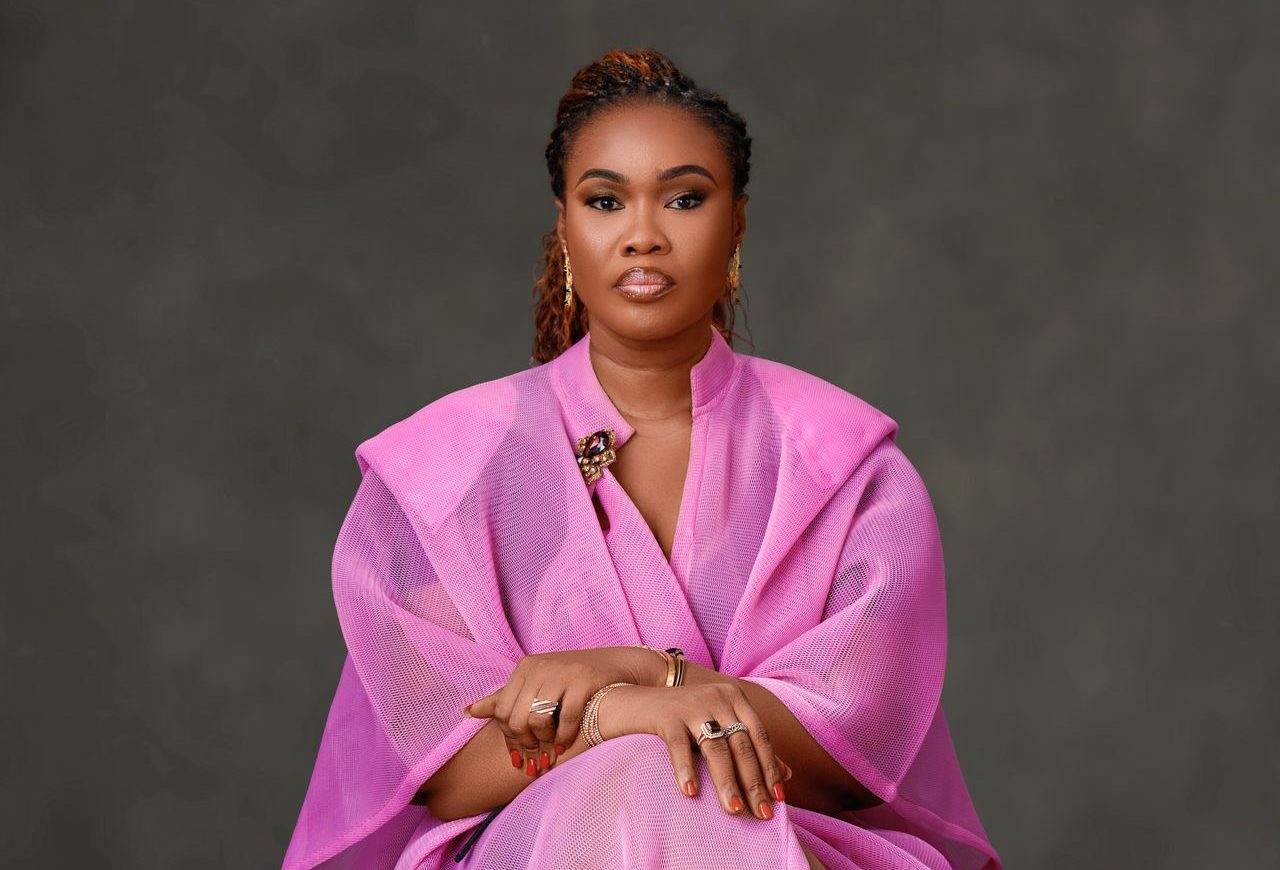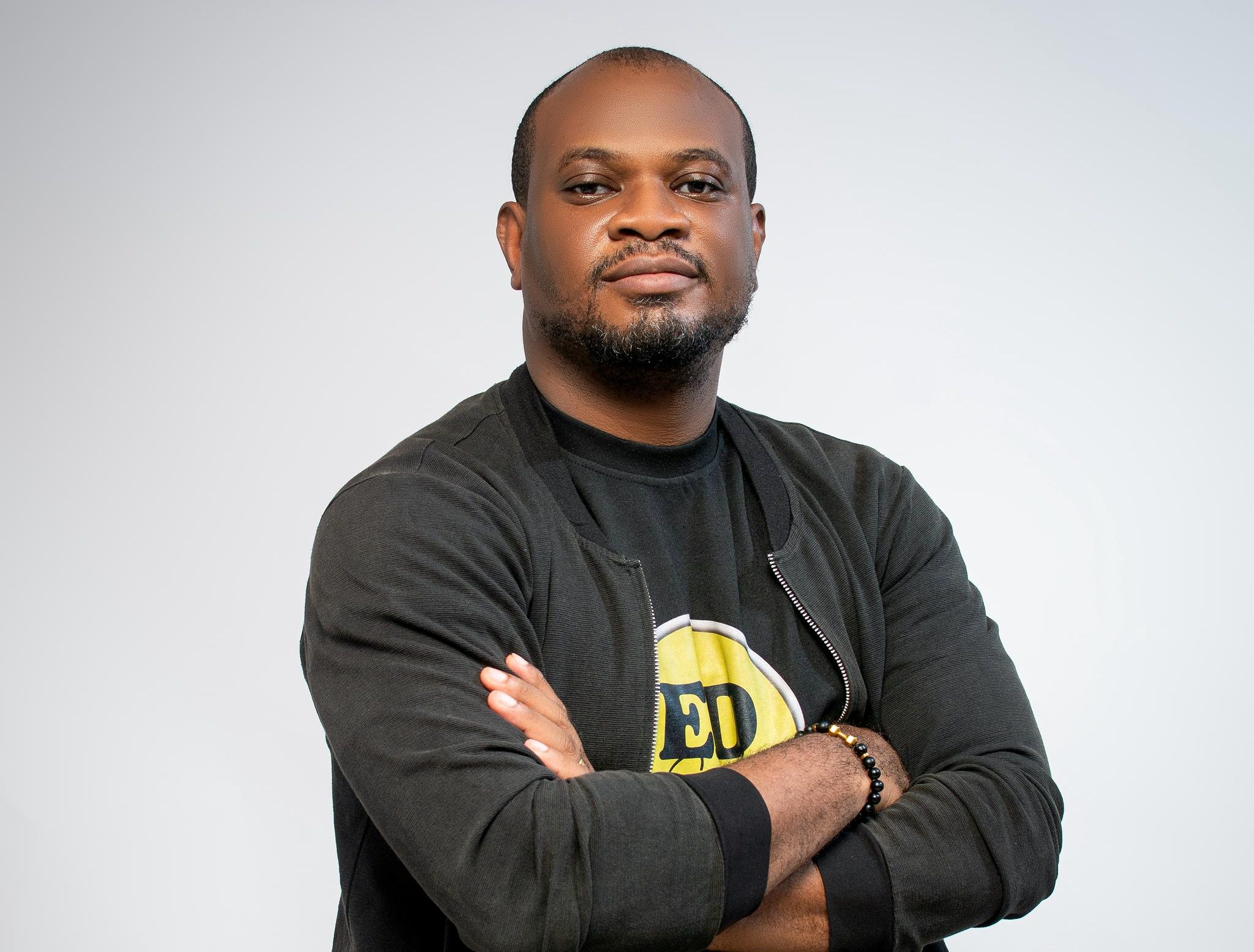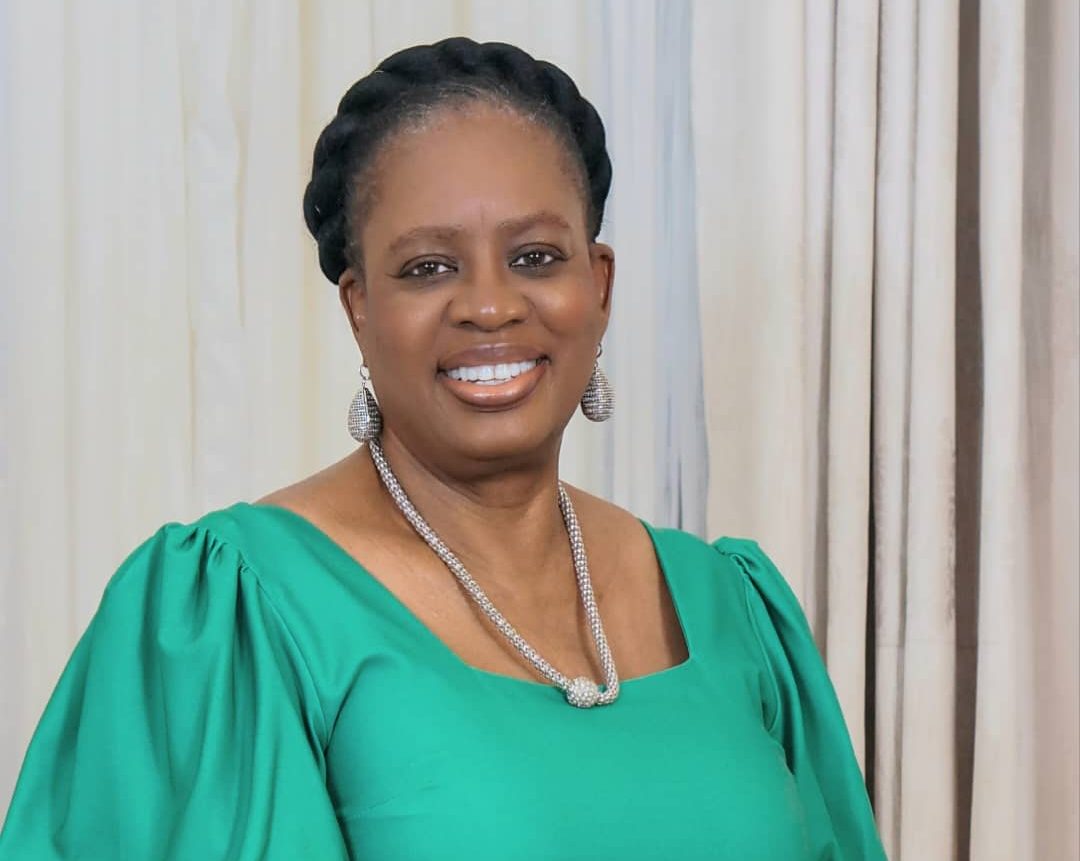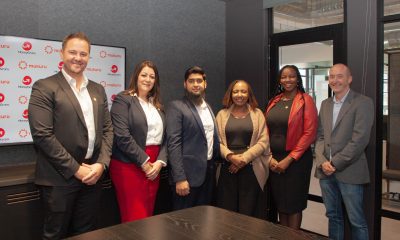Afripreneur
Revolutionizing Cross-Border Payments in Africa: An Exclusive Interview with Onyinye Olisah

Onyinye Olisah is the Founder and CEO of PayOnUs, the financial technology arm of Paylode Services Ltd, powering seamless cross-border payments across Africa and beyond. With over 19 years of experience in finance, banking, and fintech, she blends deep industry expertise with bold innovation in financial infrastructure. Under her leadership, PayOnUs has become a trusted payments enabler for merchants in high-volume sectors such as gaming, forex, e-commerce, and digital goods, processing transactions in more than 15 African countries. With a mission to simplify and accelerate international transactions, Onyiinye shares insights with Alaba Ayinuola of Business Africa Online (BAO) on the future of fintech, the challenges of navigating complex payment landscapes, and the opportunities for growth and innovation in the African market. Excerpts.
Alaba: What inspired you to start your fintech company, and what problems are you solving?
Onyinye: The foundation of PayOnus was built on a core vision: to unlock the economic potential of Nigeria and Africa by solving fundamental financial friction points.
My inspiration stemmed from observing three major gaps:
- Underservice to Small and New Businesses: We built PayOnUs with this category of businesses in mind. Payments is a high volume/count game and so all PayFacs are after those brands and business that already have the numbers and the transactions that went with it. The small business had to struggle for attention towards either onboarding or resolution of issues that impacted their growth at a critical point of their business. PayOnUs aims to identify the businesses that fall within this niche and grow with them.
- Growth Potential: We recognized that though the digital payments space had exploded exponentially in recent years, there was still room for growth for both SMEs and large enterprises, accepting and managing digital payments (whether card, bank transfer, or USSD) was often still slow, complex, and suffered from high failure rates. This fragmentation hindered commerce.
- Financial Exclusion: A significant portion of the population remained underserved, and a huge chunk of transactions were still cash based, limiting their ability to participate in the growing digital economy.
We are solving the following problems at PayOnus:
- Payment Reliability and Customer Service
- Creation of Financial Access
- Bridging the Digitization Gap
Alaba: What are the most significant challenges facing the industry in Africa, and how can they be addressed?
Onyinye: The most significant challenges facing the fintech industry in Africa stem from a combination of regulatory and operational friction points. The key issue is regulatory fragmentation, where rapid and often unpredictable policy changes from the regulator, particularly here in Nigeria, create a costly and complex compliance burden that severely restricts pan-African scaling.
We address this by establishing proactive regulatory engagement, not just for compliance, but to advocate for the harmonization of KYC/AML standards across the continent. Operationally, we grapple with significant infrastructure gaps and a lack of seamless interoperability between various payment systems, resulting in high transaction failure rates; our solution is to invest in technology-agnostic API infrastructure to ensure reliable service delivery regardless of local constraints.
Finally, persistent currency volatility and limited liquidity restrict cross-border trade, which we are tackling by developing localized treasury solutions and exploring the use of secure, regulated blockchain technology for B2B settlements to reduce traditional FX friction. This comprehensive approach transforms obstacles into opportunities for innovation and ecosystem building.
Alaba: How is your company contributing to financial inclusion and economic growth in Africa?
Onyinye: PayOnus is a direct engine for both financial inclusion and economic growth, addressing the fundamental need for reliable and accessible financial infrastructure across Africa.
We directly address the large unbanked and underbanked population through our proprietary technology:
USSD Accessibility: Our Pay with USSD service is a crucial financial inclusion tool. By leveraging this technology, we ensure that individuals and small businesses operating in remote areas or those using basic feature phones—who cannot access the internet or a bank branch—can still perform transactions, transfer funds, and paying merchants securely. This bridges the digital divide and provides a pathway into the formal financial system.
Tailored Services: Through our B2C focus, BankOnus, we aim to provide convenient, low-barrier banking and financial services designed specifically for the needs of the underserved, moving them from financial access to financial empowerment.
We create the rails for a truly cashless and digitally connected economy. By providing seamless, secure, and developer-friendly payment solutions, we facilitate both local and cross-border trade, lowering the cost of commerce and unlocking new revenue streams for enterprises across Nigeria and the wider African market.
what are the key pain points in remittance and cross-border payment processes in Africa and how can they be improved?
Alaba: What are the key pain points in remittance and cross-border payment processes in Africa and how can they be improved?
Onyinye: The key pain points in African cross-border payments are exorbitant costs, severe currency volatility, and deep regulatory fragmentation. Remittances suffer from transaction fees far exceeding global averages, often due to reliance on slow, opaque legacy correspondent banking systems. Furthermore, the lack of currency liquidity and unpredictable FX restrictions in markets like Nigeria inject significant risk and complexity.
Payonus and the industry are addressing this by:
- Bypassing intermediaries through API-driven, low-cost rails and utilizing regional systems like PAPSS to enable cheaper local currency settlement.
- Implementing real-time FX APIs and localized liquidity solutions to mitigate currency risk and provide instant price transparency.
- Partnering with other Payment Facilitators across Africa by collaborating on cross border payments and remittances across the continent, enabling seamless, instant, and secure trade and remittances.
Alaba: How do regulatory frameworks in Africa impact the development of fintech, remittance and cross-border payments?
Onyinye: The Nigerian regulatory framework has a dual and often contradictory impact on PayOnus and the fintech sector.
On one hand, it is a key enabler: CBN policies, such as the aggressive cashless drive and the support for channels like USSD and agent networks, have successfully forced rapid digital payment adoption and financial inclusion, creating a massive addressable market for our platform. Furthermore, the Regulatory Sandbox allows us to test innovative solutions in a controlled environment.
On the other hand, it imposes major constraints: The most critical challenge is policy volatility, particularly regarding Foreign Exchange (FX) controls. Frequent and complex shifts in guidelines for currency sourcing and repatriation, while aiming for economic stability, severely raise the cost, complexity, and operational risk of offering seamless remittances and cross-border payments, demanding continuous, resource-intensive compliance.
Alaba: What role can Fintech play in promoting financial inclusion in Africa and are there successful examples?
Onyinye: Fintech’s primary role in Africa is to be the greatest accelerator of financial inclusion, effectively bypassing the limitations of traditional, costly brick-and-mortar banking. It achieves this by focusing on accessibility, affordability, and relevance.
Fintech leverages ubiquitous mobile technology (even basic feature phones) to provide low-cost access to essential services like payments, savings, and credit, thereby creating a crucial digital financial identity for the previously excluded. Successful Examples;
- M-Pesa (Kenya/East Africa): The most famous example, which pioneered the Mobile Money model using USSD technology. It successfully onboarded over 80% of Kenya’s adult population into the formal financial system, proving the viability of mobile-centric financial services.
- Nigerian Payment Platforms: Companies in Nigeria focusing on API-driven payment processing (e.g., Paystack, Flutterwave) and digital banks (e.g., Kuda) have been instrumental in digitizing transactions for millions of MSMEs and individuals, accelerating the shift toward a cashless economy. This digitization of commerce is foundational to broader economic participation.
Alaba: How can fintech companies’ partner with traditional institutions to drive financial inclusion and innovation?
Onyinye: Partnerships between fintech companies and traditional financial institutions are essential for scaling financial inclusion and innovation across Africa. This collaboration is a strategic alignment known as coopetition, where each entity provides its unique strength. Fintechs contribute cuttingedge API technology, superior user experience (UX), and data analytics that enable new credit scoring models for the unbanked. In return, traditional institutions provide the required regulatory licenses, the underlying balance sheet liquidity, and deep expertise in risk management. This synergy enables the rapid, compliant roll-out of services like micro-lending and digital wallets to the mass market.
Furthermore, fintechs offer low-cost, mobile-first channels (like USSD), while banks contribute their vast existing physical agent networks (e.g., POS operators), effectively bridging the digital and physical divide to offer financial access to entrepreneurs and individuals outside of urban centers. The key is leveraging the fintech’s speed and innovation on the foundation of the bank’s trust and regulatory stability.
Alaba: Lastly, how do you measure the success of your company’s products and services?
Onyinye: As the CEO of a financial services company, our success measurement is grounded in a balanced score card that tracks both Commercial Viability and our core mission of Impact and Financial Inclusion.
These metrics demonstrate our commitment to the African market and our mission:
- Digital Adoption Rate (Inclusion): Tracking the number of previously unbanked individuals and MSMEs brought into the formal financial system via our low-barrier products, particularly Pay with USSD and BankOnus accounts.
- Interoperability Index: Measuring our connections with local banks and regional systems (like PAPSS), ensuring our payments can reach every corner of the African financial ecosystem efficiently.
- Fraud and Chargeback Rate: Maintaining a low rate is crucial, as it builds consumer and regulatory trust, which is foundational to the security and integrity of the financial system.
Afripreneur
Transforming Classrooms: Oluwatobi Akapo on Building an EdTech Company

In a world where education is often determined by geography, privilege, and opportunity, Oluwatobi Godonu Akapo stands as a determined disruptor. As the Founder and CEO of Edswot Consulting Limited, an innovative EdTech company, Akapo is on a mission to break barriers, democratize quality learning, and ignite the futures of thousands of children across Africa and beyond. With a strong background in sales leadership and business development, Akapo’s career spans industry giants such as Jumia, Kwik Delivery, Shuttlers, and Edukoya, where he consistently delivered exponential growth, transforming revenues from millions to tens of millions within short periods. Under Akapo’s leadership, Edswot has grown into a multi-curriculum hub, offering tutoring across British, American, Nigerian, Canadian, and Irish systems. In this exclusive interview with Alaba Ayinuola of Business Africa Online (BAO), Oluwatobi discusses the company’s mission, its impact on students and teachers, the intersection of education and innovation and the future of EdTech. Excerpts.
Alaba: What does the decline of indigenous languages mean for Africa’s cultural identity in a digital age?
Oluwatobi: The decline of indigenous languages is more than a linguistic loss; it is an erosion of our cultural DNA. Language carries history, values, traditions, and identity. If we lose our languages, we risk raising a generation disconnected from its roots, unable to fully interpret its past, and therefore less equipped to shape a distinctly African future in the digital age. At Edswot, we view indigenous language preservation as vital to strengthening Africa’s identity, even in an increasingly globalised world.
Alaba: How can education systems balance the teaching of indigenous languages with the global demand for English, French, and other foreign languages?
Oluwatobi: It does not have to be a zero-sum game. Children can master global languages for competitiveness while simultaneously learning their mother tongues to stay grounded. Our curricula at Edswot integrate both—offering French and English alongside Yoruba, Igbo, Hausa, and others. The real balance comes from policy and mindset: valuing indigenous languages as assets, not liabilities.
Alaba: Do you see language as a tool for preserving memory, or as a pathway to future innovation?
Oluwatobi: It is both. Language preserves our memory—our heritage, our mistakes, and our victories. But it also acts as a springboard for innovation. Without knowing where we come from, how do we forge ahead? African languages possess unique worldviews that can inspire solutions, governance models, and creativity that are both locally relevant and globally applicable. At Edswot, we see this dual role as the heartbeat of our mission. For example, the Benin Kingdom (also called the Bini Kingdom), located in present-day southern Nigeria, was indeed one of the wealthiest, organised, and artistically advanced civilisations in pre-colonial Africa.
A fascinating part of African history that often gets under-told. It had the Great Benin Walls that probably rivalled the Great Wall of China with 16,000km built within the 13th and 15th Centuries, wealthy in trade through the sale of Pepper, Palm oil, cloth, beads and later Brass and Copper. This is just one of the numerous histories that can help forge innovations for a better future.
Alaba: How can EdTech make the teaching of African languages as attractive as coding or STEM subjects?
Oluwatobi: By leveraging the same tools that make STEM appealing—interactivity, gamification, storytelling, and global connectivity. We must position African languages not as relics but as living, dynamic vehicles of culture. At Edswot, we use modern teaching techniques, from virtual immersion classes to cultural storytelling, so that learning Yoruba feels as engaging as building an app. When students realise their language is tied to pride, history, and innovation, its appeal multiplies. We can see how globally accepted the Ojude Oba festival has become, considering the artistry, beauty, and modern spice that create an entertaining yet welcoming feel to learn about our history.
Alaba: What are the risks if African children grow up fluent in global languages but disconnected from their mother tongues?
Oluwatobi: The risk is cultural amnesia. We could produce citizens who are globally fluent but rootless, unable to pass on their heritage. Our festivals, proverbs, and oral traditions may disappear, replaced by a uniform culture that strips us of uniqueness. At Edswot, we emphasise bilingualism and multilingualism, ensuring children speak the languages of the world while cherishing the language of their ancestors. Even Wole Soyinka a Nobel Laureate, is proficient in English, a global language and what he uses to write most of his novels, Yoruba and French.
Alaba: How can the integration of language learning into digital platforms create stronger cross-cultural understanding across Africa?
Oluwatobi: Digital platforms are bridges. Imagine a child in Lagos learning Swahili from a tutor in Nairobi, or a Ghanaian student exchanging Yoruba proverbs with a Nigerian peer. This breaks barriers, fosters unity, and strengthens trust across borders. At Edswot, with our global reach, we are already enabling this cross-cultural exchange, uniting learners across three continents.
Alaba: Do you think African governments are doing enough to embed culture and language into formal education?
Oluwatobi: Governments have made efforts, but more must be done. Embedding local languages into formal education should be non-negotiable. Exchange programs across West Africa and the wider continent could help children experience cultures firsthand. Visa-free policies within Africa would also allow cultural learning beyond classrooms. At Edswot, we complement these gaps, creating platforms where culture and language thrive. A great example is a European Citizen having the ability to travel unrestricted to the majority of European countries without a Visa, or someone with a Schengen visa, who can also work there with just an ID. Africa should replicate this in Africa.
Alaba: How can indigenous languages open new markets for African businesses in the global economy?
Oluwatobi: Indigenous languages can be economic assets. Consider tourism, entertainment, film, fashion, and even AI development. Companies that use local languages to reach markets are often the most relatable and successful. African businesses that embrace indigenous languages position themselves as authentic, tapping into a loyalty and pride that money cannot buy. At Edswot, we help businesses and families alike see language as a bridge to opportunity, not a barrier. The Ojude Oba festival comes to mind and brings tourists to Nigeria.
Alaba: In building future leaders, what is lost when cultural education is left out of the curriculum?
Oluwatobi: We lose empathy, understanding, and identity. Future leaders would lack context for why societies behave the way they do, missing the chance to leverage cultural strengths. At Edswot, we teach children not only academics but also cultural fluency—because leadership requires knowledge of both people and principles. Just like Tim LaHaye’s book “Why You Act the Way You Do” Your Environment is a key contributor to the way you act, and it helps to understand where people are coming from to understand who they are and why they act the way they do.
Alaba: If you had to imagine African classrooms in 2050, how would technology and indigenous language learning coexist?
Oluwatobi: Picture classrooms where AI translates African proverbs in real-time, VR headsets take children on journeys to historical African kingdoms, and gamified apps teach Igbo alongside Python coding. In 2050, African classrooms will not separate culture from technology—they will blend them seamlessly. At Edswot, we are laying the foundation for that future today.
Alaba: Edswot teaches both African and global languages. How do you decide which languages to prioritise for today’s learners?
Oluwatobi: While parents and learners choose what fits their goals, we encourage diaspora families to reconnect with their roots through African languages. At the same time, we provide global languages like French and English for competitiveness. Our role is to ensure that no child has to choose between identity and opportunity; they can have both.
Alaba: Your platform connects learners across three continents. How does this global reach influence the way Edswot integrates culture into its teaching?
Oluwatobi: Global reach keeps us conscious of diversity and inclusivity. Teaching across continents means showcasing Africa to the world while absorbing best practices from other regions. At Edswot, we integrate cultural storytelling, cross-border tutors, and inclusive pedagogy so learners in the UK, US, or Nigeria can share in Africa’s richness while excelling academically. Our goal is to make Africa’s cultural capital as exportable as its natural resources.
Afripreneur
Leading with Purpose: Khadijat Abdulkadir at the intersection of tech and philanthrophy

Khadijat Abdulkadir is the Founder of INGRYD Group, a visionary leader dedicated to empowering African youths through technology. As a trained software engineer and serial tech entrepreneur, she is the driving force behind INGRYD Academy, which is a specialized technology training and placement organization that has trained over 4,000 individuals to date. Khadijat’s entrepreneurial journey includes founding Xerde Technology and also founded Digital African Woman, a social enterprise co-financed by the EU commission. Her extensive career spans tech roles at global organizations such as Africa Prudential, Microsoft, Accenture, and Apside Belgium. In this exclusive interview with Alaba Ayinuola of Business Africa Online (BAO), Khadijat shares insights on leveraging technology for social good, fostering collaborative ecosystems, and empowering communities through innovation. Excerpts.
Alaba: What inspired you to create INGRYD Academy, and how did your personal journey influence its mission and direction?
Khadijat: The inspiration for INGRYD is deeply tied to my personal and professional journey. I began my career as a software engineer and, over the years, worked with global firms such as Accenture, Microsoft, and Apside in Belgium. In 2019, I returned to Nigeria to assume a leadership role as Chief Technology Officer at Africa Prudential Plc. Becoming a CTO in Nigeria was my first experience working on the continent. It came with its challenges, but it remains the most transformative chapter of my life.
At Africa Prudential, I was involved in developing solutions for the capital market and contributing to the digital transformation agenda of organizations within the Heirs Holdings Group. Notably, I played a key role in deploying the Nigerian Police Cooperative platform, a solution designed to automate the entire cooperative process for over 387,000 Nigerian police officers. Each stage of that journey showed me the power of technology. More importantly, it shaped my conviction that Africa does not only need consumers of technology but also builders and innovators. I also realised that having the right talent and expertise at every point in an organisation’s journey is often the difference between success and failure.
Interestingly, in my previous roles, I was usually the talent sent to rescue projects. But as a CTO, I found myself searching for talents to rescue my own organisation. The more I searched, the more I realised how scarce they were. That opened my eyes to a gap I knew I could help close. It created in me the desire to build a pipeline so vast and carefully curated that no CTO in Africa would ever have to list technical talent as a risk in any major project.
INGRYD was born from that commitment. It is not just an academy but also a social responsibility to equip young people with the expertise required to drive and sustain ambitious digital agendas. We are building human capital at scale because I firmly believe it is the only way Africa can truly shape its digital future.
Alaba: As a founder and CEO, what does innovation mean to you, and how do you ensure it stays at the heart of your organisation’s culture?
Khadijat: For me, innovation is not just about creating something new; it is about solving problems in ways that create lasting impact. It means asking; How can this be done better? How can it reach more people? How can it create opportunities where none existed? At INGRYD, innovation is not a buzzword. It is the DNA of everything we do.
It shows up in our model itself. Rather than being just another training academy, we built INGRYD around a pipeline approach that connects training directly to job placement. We measure our success not by the number of people we train but by how many secure sustainable careers. That shift in focus is itself an innovation in the education space.
Also, it shapes our partnerships. When we became the sole academic partner for ISACA in Nigeria, it was not only about adding certifications to our portfolio. It was about giving learners access to global standards, international networks, and career opportunities across 190 countries at a price they can afford. That mindset, expanding horizons for our learners, is innovation in action.
Culturally, I embed innovation at INGRYD by encouraging curiosity and adaptability. The tech industry evolves daily, and any organisation that hopes to survive must stay curious and flexible. My team knows we do not settle into routines for too long; we are always asking how to improve, expand, and deliver more value. This culture allows us to evolve as the industry evolves.
At the end of the day, innovation for me is not about gadgets or hype. It is about people. It is about creating solutions that transform lives, whether through technology, education, or systems. That is the heart of how I lead and how INGRYD continues to grow.
Alaba: What were some of the biggest challenges you faced while building INGRYD Academy, and how did you navigate them as a woman entrepreneur in tech?
Khadijat: Talent development is not as attractive to investors as fintech or e-commerce. It requires patience, and the returns are not always immediate. Convincing stakeholders to view education as a driver of GDP rather than only a social good has been a challenge. We have navigated that by showing results: thousands trained, hundreds placed in global jobs, and an expanding pipeline of measurable impact.
Being a woman in a male-dominated field also comes with challenges. As the first Special Adviser on IT to the Inspector General of Police, I worked in one of the toughest environments possible, law enforcement, where leadership is overwhelmingly male. I was tasked with building banking systems for the police and modernising their digital infrastructure. It was daunting, but it proved that women can thrive and lead even in the most traditional spaces.
Over time, I have learned to let results speak louder than biases. Every milestone we crossed, whether raising $2 million in funding for Qurop, my latest venture, or training thousands of young people, shifts the conversation from questioning my ability to recognising the impact of the work.
Alaba: How do you keep your programs aligned with the evolving needs of the tech industry and the future of work?
Khadijat: The tech industry evolves at an incredible pace, and one of the key lessons I carried from my time as a CIO and CTO is that skills can become outdated in as little as two years. At INGRYD, we take this seriously, which is why our programmes are designed to stay aligned with global standards and the real demands of employers. Relevance is not optional in this space; it is the foundation of what we do.
A strong example is our partnership with ISACA. INGRYD Academy is now the sole academic partner for ISACA’s training and certifications in Nigeria, positioning us as the official ISACA centre of excellence in the country. This is more than recognition; it is a responsibility. We have integrated ISACA’s Fundamentals training into our curriculum, ensuring that students graduate with globally recognised certifications accepted in more than 190 countries.
This partnership transforms opportunities for our learners. They are prepared not only for local jobs but also for global roles. They also gain access to INGRYD’s network of over 288 international partners, and every certified graduate automatically receives a one-year ISACA student membership. This membership opens doors to mentorship, professional networks, and career opportunities that many would otherwise never access.
Students also benefit from exposure to ISACA Global Chapter activities, knowledge-sharing sessions, and mentorship circles. Together with ISACA, we host workshops, conferences, and industry events that keep learners at the cutting edge of global tech standards. By combining certification, mentorship, networking, and practical experience, we give our graduates a holistic foundation that is rare in Africa.
This is how INGRYD keeps pace with the industry. We do not simply teach skills; we embed our learners into the global technology ecosystem. This ensures they are not only prepared for today’s roles but also capable of leading in the workforce of the future.
Alaba: Which milestone or initiative at INGRYD Academy are you most proud of, and what impact has it had on learners or the broader ecosystem?
Khadijat: There are many milestones I am proud of, but two stand out for their scale and impact. The first is our partnership with ISACA, through which 40,000 Nigerian youths are being certified with internationally recognised credentials. This not only raises the standard of our training but also gives our learners access to certifications that make them globally competitive. For many, it is the first time they feel positioned on equal footing with peers worldwide.
The second is our collaboration with the Lagos State Employment Trust Fund. This is one of the largest public-private initiatives of its kind in Africa, with a ₦3 billion investment committed to training 60,000 Nigerians in advanced digital skills over five years. The scale of this investment in human capital is unprecedented and reflects the confidence public and private stakeholders have in INGRYD’s model.
What excites me most about these milestones is not the numbers but the impact stories. I think of young people who entered our programmes with little hope and left with global opportunities. Some are the first in their families to earn an international certification, while others have secured jobs that uplift entire households.
These stories remind me that we are not just training individuals, we are changing the trajectory of families and communities. Every job secured, every certification earned, creates a ripple effect far beyond the classroom. This is why our work matters.
Alaba: How do you personally manage the demands of entrepreneurship while maintaining clarity and balance in your personal life?
Khadijat: Balance is one of the hardest lessons I have had to learn. As an entrepreneur, I carry the responsibility of leading businesses, building teams, and ensuring results. At the same time, I am a wife, a mother, and a Queen in my community. Each role is demanding on its own, and combined, they can feel overwhelming.
The truth is that it is not easy. It requires long hours, sacrifice, and prayer. There are moments when the weight feels heavy, but I draw strength from my purpose. I care deeply about my family, my community, and the young people who depend on me to create opportunities. That responsibility keeps me moving forward even in difficult times.
What helps me find balance is grace and intentional focus. I try to be fully present in whatever role I am playing at any given time. When I am with my family, I give them my full attention. When I am leading INGRYD, I pour myself into the work. I also rely on prayer because I believe God’s grace is what enables me to sustain these roles.
Delegation has been key. I have built strong teams I can trust, which means I do not have to carry every responsibility alone. This not only frees me but also allows my teams to grow as leaders in their own right.
Balance is not effortless, and I would never pretend it is. But it is worthwhile. Every milestone we achieve in business, every smile from my children, every moment of service to my community reminds me that the effort is worth it.
Alaba: What role has mentorship played in your journey, and how do you support emerging talent within your organization or industry?
Khadijat: Mentorship has been one of the most important aspects of my career. I would not be where I am today without the mentors who guided me, challenged me, and opened doors at critical points. As a young engineer, I had mentors who encouraged me to take risks, grow, and trust my ability. Later, as a CIO and CTO, I benefited from guidance that helped me navigate leadership and align technology with business strategy.
Because mentorship has been so central to my growth, I made it a pillar of INGRYD’s model. Our learners are not just trained in technical skills; they are connected to mentors who guide them through the transition into the industry. This ensures they graduate not only with knowledge but also with the networks and relationships needed for sustainable growth.
Beyond INGRYD, I personally mentor entrepreneurs and women in technology. I am especially committed to creating pathways for women because I know firsthand the challenges of leading in male-dominated spaces. Seeing women succeed in tech leadership roles is something I am deeply passionate about, and I make it a priority to guide them whenever I can.
Through my NGO, Digital African Woman (DAW), mentorship has been scaled even further. Funded by the European Union for more than a decade, DAW has supported over 600 women across Africa and Europe with training, mentorship, and access to funding. For me, this is one of the most impactful parts of my work because it empowers women to become self-sufficient leaders who go on to mentor others.
Alaba: What advice would you give to young women who aspire to lead in tech or launch purpose driven ventures?
Khadijat: My first advice is simple: do not wait for permission to lead. Too often, women are conditioned to hold back until they are invited to the table, but leadership is not about waiting, it is about stepping forward. Even when you feel uncertain or unprepared, take the leap. Every role I have ever held, from being the first Special Adviser on IT to the Inspector General of Police, to serving as CIO and CTO, to founding my own ventures, came with moments of doubt. But I learned that growth comes when you step into opportunities, not when you wait for the perfect moment.
Secondly, invest in your knowledge and skills. In technology, credibility comes from competence, and competence comes from continuous learning. Stay curious, stay updated, and do not be afraid to dive into areas that seem challenging. The more you know, the more confident you will become in leading teams, building products, or launching ventures.
Finally, remember that leadership in tech is not about fitting in, it is about creating space for others to rise. Do not shrink yourself to conform. Use your voice, build your vision, and lift others as you climb. True leadership is not measured by how high you go but by how many people you empower along the way.
Alaba: What legacy do you hope to leave through your work at INGRYD Academy, and how do you envision shaping the future of tech education in Africa?
Khadijat: For me, legacy is about creating institutions and opportunities that outlast me. I do not want INGRYD to be remembered as just another training academy. I want it to be seen as a turning point in how Africa develops its human capital and competes in the digital economy.
I hope to leave behind a legacy where young Africans no longer see technology as distant or reserved for the privileged few. I want it to be normal for a child from a low-income household in Nigeria to aspire to become a cloud engineer, a cybersecurity expert, or a software architect, and to have the systems in place to make that aspiration possible.
I also want to embed an education model that is tied directly to outcomes. Too often, education in Africa has been about theory with little connection to the workforce. INGRYD challenges that by linking every programme to global standards, certifications, and employment opportunities. My hope is that this approach becomes the norm, not the exception, across the continent.
Beyond education, I want my legacy to be one of empowerment, especially for women. Through Digital African Woman and my work at INGRYD, I have seen how empowering one woman can change the trajectory of families and communities. I want that ripple effect to continue long after I am gone.
Afripreneur
Empowering Minds: An Exclusive Interview with a Visionary Educator and Tech Advocate, Modupe Adeyinka-Oni

Modupe Adeyinka-Oni is a renowned educator, speaker, author, and tech advocate with over four decades of experience in nursery and primary school education. She is passionate about technology and education, having dedicated her career to stretching the boundaries of 21st century experiential learning through immersive classroom experiences and digital tools. She is the founder of Standard Bearers School, a leading nursery and primary school in Lekki, Lagos, Nigeria. In a quest to bridge educational inequalities, she founded the iAfrica Cloud School Foundation, as a corporate social responsibility (CSR) initiative of Standard Bearers School. The foundation focuses on providing quality education to children in underserved communities across Nigeria. In this exclusive interview with Alaba Ayinuola of Business Africa Online (BAO), Modupe speaks on her online learning platform, EduLab360 and iAfrica Cloud School Foundation, shareS insights on the evolving landscape and future of education, the role of technology in shaping learning, and the importance of innovation in driving progress. Excerpts.
Alaba: What inspired you to create a pan-African online learning resource centre, and what problem do you aim to solve?
Modupe: The inspiration to create EduLab360 emerged from a deeply personal and professional journey that began in the classrooms of Standard Bearers School in Lekki, Lagos, and extended through outreach work with underserved communities across Nigeria via the iAfrica Cloud School Foundation. While working with children in Makoko, IDP camps, and other disadvantaged areas, I encountered a persistent and heartbreaking issue: most of the children were being taught to memorize rather than to understand. They struggled to read, and so did their teachers. These communities, grappling with educational neglect, had inadvertently created a cycle of illiteracy—children were unable to read, so they couldn’t learn; and because they couldn’t learn, parents saw no value in keeping them in school.
This experience forced a reckoning. It was clear that without urgent intervention, the narrative that “education is a scam” would continue to gain traction in these communities. It wasn’t enough to teach children how to read; we had to re-train the teachers, many of whom were themselves victims of a broken system. I realized that tackling the issue from the root—teacher literacy, methodology, and mindset—was the only way to achieve sustainable impact.
We started small, intending to stream lessons live from our school to these communities. But the reality of poor internet access forced us to pivot to pre-recorded video lessons. That decision was transformative. It allowed us to reach more people, ensure consistent quality, and respond to feedback. Eventually, we assembled a team of professionals and joined the Founder’s Institute Lagos to refine our strategy and product. That was how EduLab360 was born—a pan-African, Afrocentric platform focused on literacy, civic education, and leadership training, with content tailored to the unique linguistic, cultural, and pedagogical needs of African learners.
At its core, EduLab360 isn’t just a tech solution. It is a movement. A movement to rebuild African education from the ground up, starting with literacy and expanding into holistic, values-driven education.
Alaba: How do you envision the future of education in Africa, and how does your platform fit into that vision?
Modupe: I envision a future where education in Africa becomes the foundation upon which we rebuild our economies, restore our cultural identity, and reclaim our global standing. Africa has the youngest population on the planet. That should be our superpower. But without education—relevant, accessible, and values-based—we risk squandering it.
When I think of this vision, I remember the slogan that guides us: “One Continent. One School. One Classroom.” What this means is not that every school must be the same, but that every African child, regardless of background, deserves access to the same high-quality, culturally relevant education.
Our history provides a blueprint. Before colonization, African societies had robust educational systems rooted in oral tradition, storytelling, apprenticeship, and community learning. Institutions like Timbuktu’s University of Sankore prove that we were educating scholars long before the West. But colonization disrupted that. We adopted foreign curricula, languages, and systems that often had little relevance to our context.
EduLab360 seeks to correct this. By integrating technology with storytelling, values-based education, and a pan-African lens, we are creating content that resonates with African learners. We believe education should do more than prepare children for exams—it should prepare them for life, leadership, and legacy. This is our contribution to the future of African education.
Alaba: How do you source and curate content for your platform, and what criteria do you use to ensure quality and relevance?
Modupe: Content creation at EduLab360 is both a science and an art. I draw from my four decades of experience as a literacy educator, curriculum developer, and fine artist to ensure our content is pedagogically sound and visually compelling. As a school founder, I’ve seen firsthand how children learn—and just as importantly, how they don’t.
We use the Constructivist theory and the Multiple Intelligences framework to guide our content. This means our videos are multisensory—engaging children through visuals, audio, movement, and interaction. Each lesson is designed to cater to neurodiverse learners as well as neurotypical ones.
Cultural relevance is non-negotiable. Our stories feature African names, cities, and scenarios. Our civics modules teach values using real-life case studies from local communities. We also employ feedback loops—teachers and learners can share what’s working and what isn’t, and we iterate accordingly. Our platform is built to listen as much as it teaches.
Alaba: What types of learning resources and courses can users expect to find on your platform?
Modupe: EduLab360 offers a robust library of resources for students and teachers alike. Our flagship is the three-tier phonics program: Idanre (beginning sounds), Obudu (digraphs and blends), and Mambila (tricky words and sentence structure). Each level is designed to build upon the last, ensuring that learners develop fluency and comprehension. Beyond phonics, we feature storytelling modules that blend literacy with civics, history, and moral instruction. For teachers, we provide pedagogical training videos—bite-sized, practical, and modeled on classroom realities.
Looking ahead, we are expanding into K–12 support for core subjects using 15-minute video lessons. We’re also developing language modules in Yoruba, Igbo, Hausa, Swahili, Arabic, and eventually Mandarin. These will help children connect with their roots while gaining global competencies.
Alaba: What impact do you hope to make in the lives of your users, and how will you measure success?
Modupe: Our primary goal is to restore literacy as a tool of liberation. We believe that when a child learns to read fluently, their entire world opens up. Reading is the gateway to civic participation, economic opportunity, and personal confidence. We want children to read—not just to pass exams—but to dream, to understand the world, and to shape it. Success, for us, is measured in multiple ways: improved literacy scores, yes—but also increased school attendance, better classroom engagement, and the confidence teachers gain after watching and applying our videos.
We’ve also embedded assessments into the LMS and provided alternative formats (e.g. photo/video submissions) for low-income users via YouTube. And in future, we hope to conduct in-person community assessments at regional hubs to further refine our impact metrics.
Alaba: What are some of the biggest challenges you’ve faced in building and growing your platform, and how have you overcome them?
Modupe: Funding remains the most significant challenge. EduLab360 has, until now, been bootstrapped by myself and a small team of believers. We have poured our resources into content creation, platform development, and outreach, often without external support.
Another challenge is stakeholder buy-in, particularly in communities where trust in the education system has eroded. We’ve overcome this by building relationships first—meeting with community leaders, mothers, and local teachers to understand their needs and co-design solutions.
To address funding gaps, we’re launching a campaign called “One Million for One Million,” asking one million people to donate whatever they can—₦1,000, ₦100,000, ₦1 million—to support the platform. It’s a grassroots model that mirrors our grassroots impact.
Alaba: What partnerships or collaborations have you established to support the growth and development of your platform?
Modupe: We have informal partnerships with community schools and NGOs across Nigeria and are actively exploring strategic alliances with teacher training colleges, edtech firms, and diaspora-led foundations. We’re also seeking collaborations with high-fee private schools that can subsidize content access for low-fee schools.
Beyond this, we are in early conversations with stakeholders in Finland and the United States to support us in building contextualized, cross-border content—especially around special needs, STEM, and vocational literacy. Our vision is to create a circular model of knowledge-sharing: private schools funding innovation, public schools gaining access, and the platform as the bridge between both worlds.
Alaba: Lastly, how do you see your platform contributing to the development of Africa’s human capital and economic growth?
Modupe: EduLab360 is not just about education; it’s about empowerment. Literacy is the foundation of human capital. A child who can read is a child who can learn, who can build, who can lead. By training children to read, think critically, and understand their civic responsibilities, we are cultivating the next generation of African leaders, innovators, and change agents. We also focus heavily on women—through our Second Chance program for adult female learners. We believe women are the anchors of community change. Educating one woman educates a generation.
Through our LMS and YouTube content, we are creating jobs for facilitators, training young graduates, and enabling remote teachers to deliver value. Over time, this ecosystem will contribute to GDP growth, reduce poverty, and build sustainable local economies across Nigeria and Africa.














